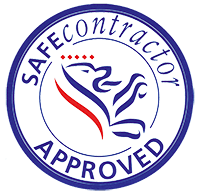Winter is now upon us and temperatures will only get colder as we proceed through December, January, and February. This is always a plumbing and heating firm’s busiest time of the year as cold weather impacts on pipes, causing all sorts of issues from flooding to boiler breakdowns.
Cold is the worst enemy of pipework for the simple reason that water freezes and when it freezes it not only creates a solid, but it expands. Water can no longer flow through a pipe that has blocked, which can both cause pressure to build behind the blockage and disrupt the function of the pipe. Water expanding in the pipe can cause pipes to burst or joints to displace, leading to flooding.
Obviously, pipes that are outdoors are most vulnerable to this but pipes, or even water meters, in unheated areas, such as cellars, could also be affected. Turning the central heating off for periods, such as when going away on holiday, can even affect indoor pipes.
While the consequences of this issue can be really serious to deal with, the good news is that most are entirely preventable, very simple, and inexpensive to deal with yourself.
The answer is to protect vulnerable pipes. You wouldn’t go out without your coat, hat, and scarf in very cold weather and your pipes need to wrap up too! By simply covering your pipes with insulated lagging, you will protect them against the cold penetrating to the water inside. Lagging is very inexpensive to buy from any hardware shop. A good tip is to secure it with cable ties. This will prevent it becoming dislodged in bad weather.
Your outside tap is one of the key areas that can be affected. If you don’t use it during the winter, and it can be isolated, the best way to avoid issues is to simply turn it off. If this isn’t possible, lag the pipe section and place a tap guard over the tap itself.
The good news is that many water companies offer these items free of charge, as well as water saving devices (see Yorkshire Water’s winter pack offer).
The condensate pipe is the pipe that allows moisture from the boiler to be dispersed outside. A frozen condensate pipe is one of the most common causes of boiler breakdowns when it is very cold.
While it can be tempting to save a bit of money on your energy bills by turning heating off when you’re away and not there to feel the benefit, it is a false economy as the damage caused by a flood is much more costly. By all means, turn it down a little or reduce the length of time it comes on for, but leave it on for the duration. If you have a smart thermostat you can control this from wherever you are, according to the weather.
If your pipes do become frozen (and sometimes, with all the planning in the world, this can be unavoidable if it gets really cold), there may still be things you can do. If it causes your pipes to burst, a flood, or joints to pop, then you will need a plumber but if you spot it early enough, you may be able to resolve it yourself.
It’s simply a case of defrosting it. Be patient though, bringing the temperature up too quickly by throwing boiling water on it can create more problems than it solves (think of what happens to your windscreen in that scenario). You need to warm it slowly by applying warm water, a warm hot water bottle, or warmed wheat bag or towel. In the case of a condensate pipe, do this and once defrosted, reset the boiler. In many cases this will resolve the problem but if it doesn’t, you will need a heating engineer.
Just as important as being able to prevent it is knowing what to do if the worst happens. A boiler breakdown will leave you without heating or hot water which is undesirable in cold weather but tolerable for short periods. A flood, however, needs dealing with quickly. Knowing a 24/7 emergency plumber is vital in this situation. Plumbcare.com operates 24/7 365 days a year so it’s always worth having our number – 0333 577 0151 – stored in your phone. We’re even open on Christmas Day and New Year’s Day!
Complete the form below and one of the Plumbcare.com team will get back to you as soon as possible.






Great Friendly Service